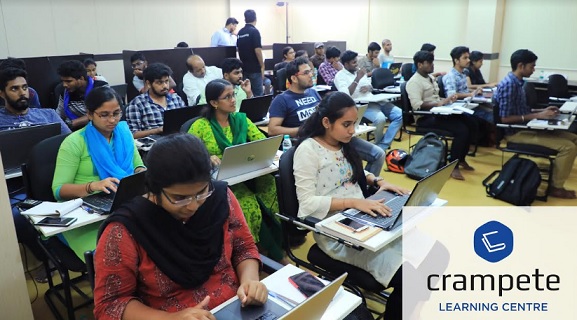Crampete Sets Up Learning Centres to Boost the Rate of Completion of Online Tech Courses
Chennai, Tamil Nadu, India
Crampete, a Singapore-based upskilling company, is setting up state-of-the-art learning centres in major cities and towns in India to enhance the completion rate of online courses, and thus the overall effectiveness of online tech skill acquisition.
 |
Crampete Learning Centres
Crampete has 15 learning centres at present, and is planning to take the number to 50 by the end of the current financial year. The centres will be spread across India. The company hopes to reach its courses to 20,000 students during the same period.
The company has 4,000 videos, produced by 100-odd master trainers. Based on its hybrid approach to training, Crampete marries edutech and education. It makes lectures available online for its students and conducts lab-based practical sessions and projects in its real-world learning centres.
Focused on the tech segment, the institute offers three tech courses in web development, data science, and digital marketing. They are tailored for beginners and those with non-programming backgrounds.
Commenting about the Crampete’s hybrid course delivery model, Mr. Shankar Prabhu J, CEO, Crampete, said, “Across the world, there is tremendous response for Massive Open Online Courses (MOOCs). Many globally reputed universities and higher educational institutions are offering online courses. However, studies show that only 5 to 10% of the MOOCs students complete the courses. In the absence of a classroom model, direct interactions among students, and hands on training, the motivation drops off significantly within a couple of weeks. The students become inactive or drop out of the courses.
Crampete is bringing in a typical classroom environment into the equation. In our model, about 60% of the course content is delivered to the students online so that they follow the course content at their own convenience. They visit a nearby Crampete Learning Center to complete course projects. By giving them an opportunity to attend a real world classroom, we are enabling synchronous learning. Lectures by master trainers, group discussions among the students, and project support keep the interest levels of the students intact. There is someone to help students debug a program or give final touch to the apps they develop. All these factors make the students complete the courses successfully.”
View article…
(Disclaimer: The above press release comes to you under an arrangement with Newsvoir India and this publication takes no editorial responsibility for the same.)
